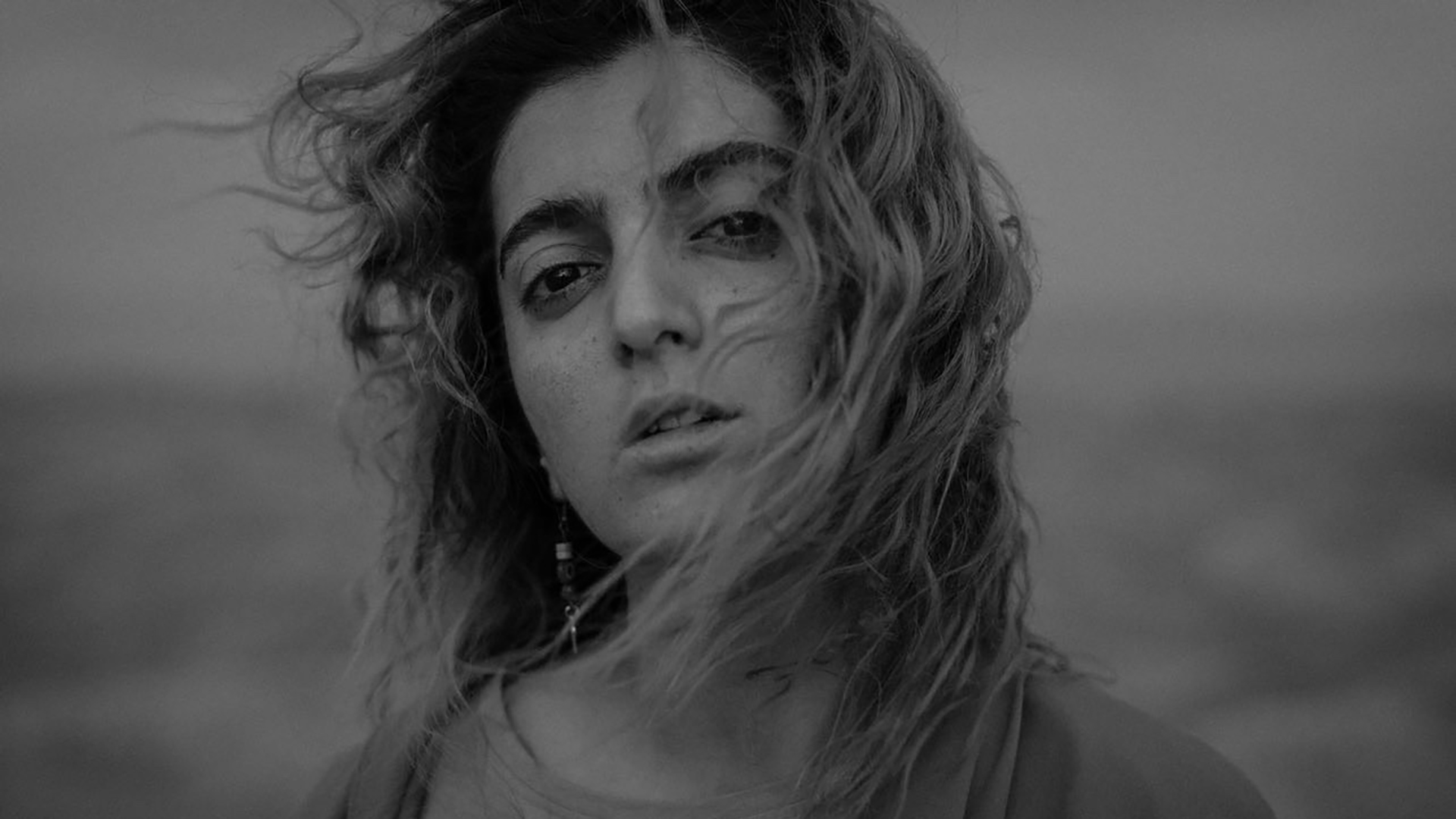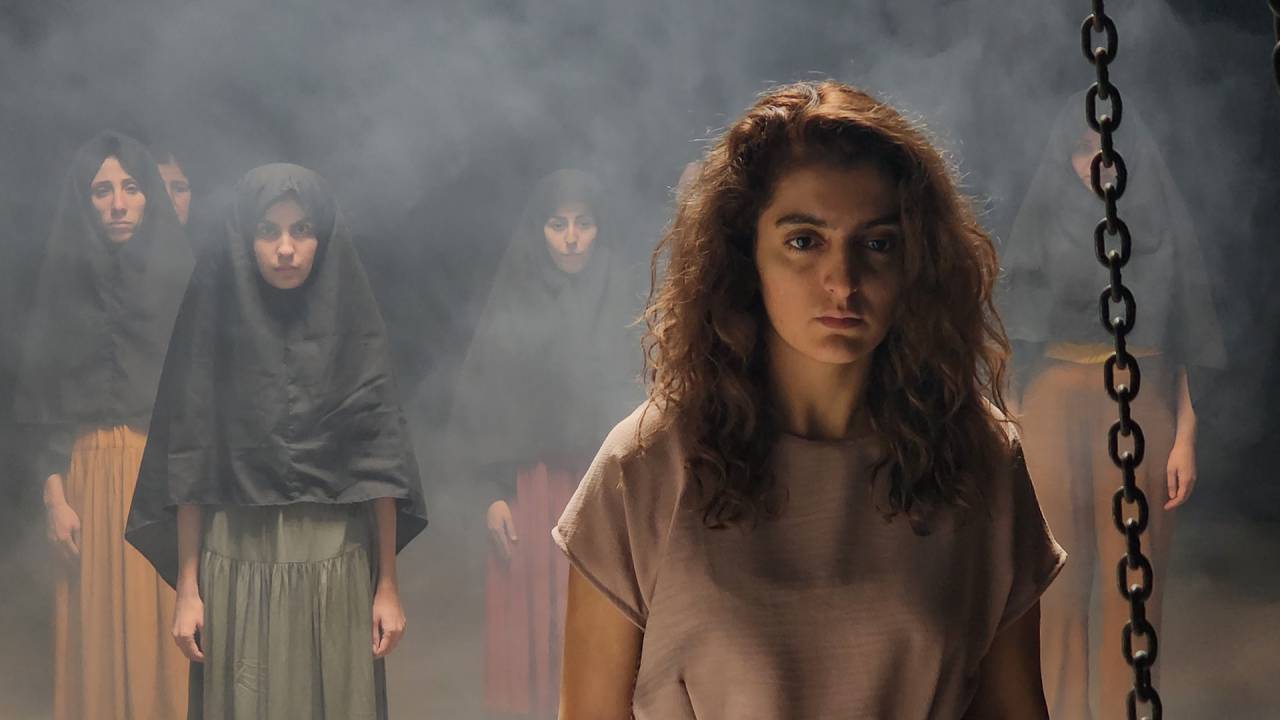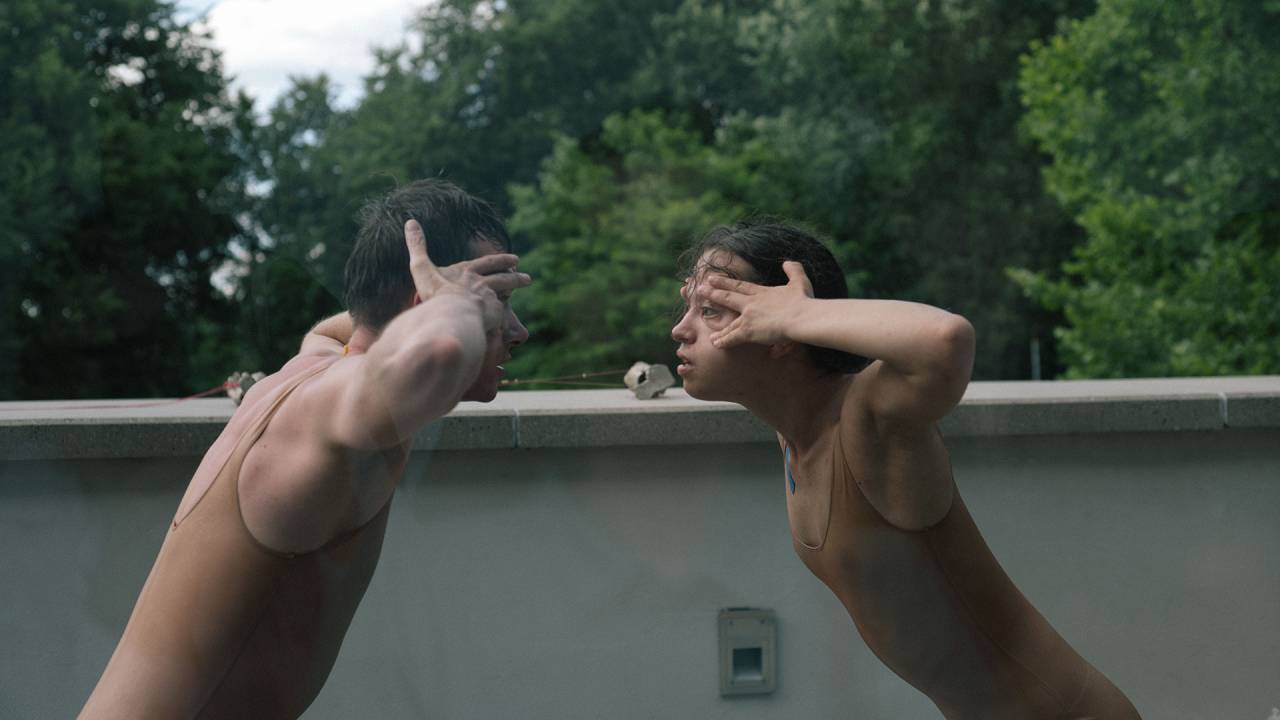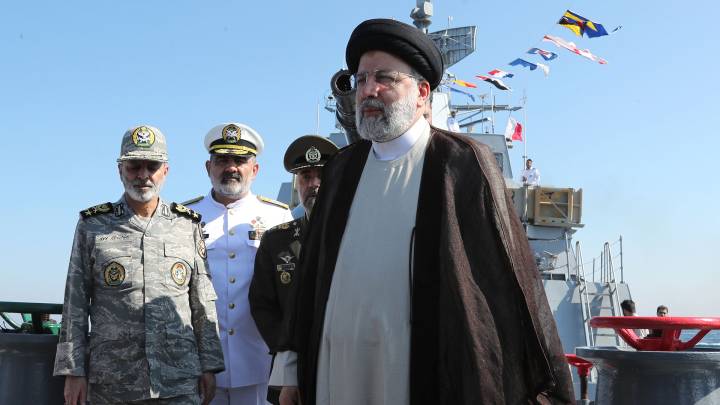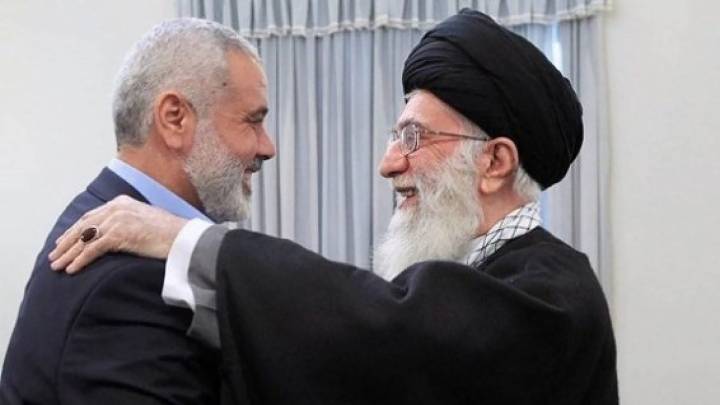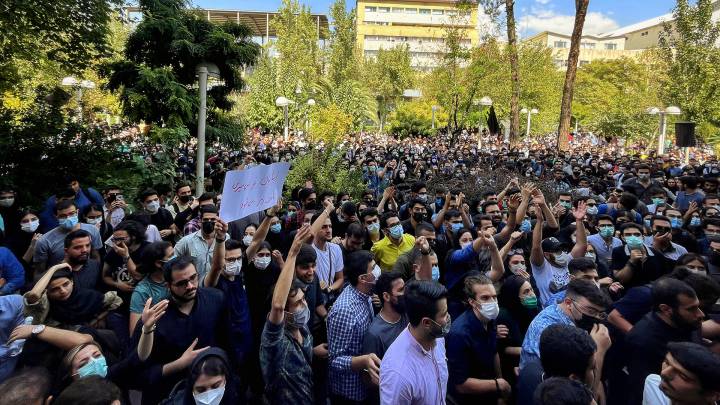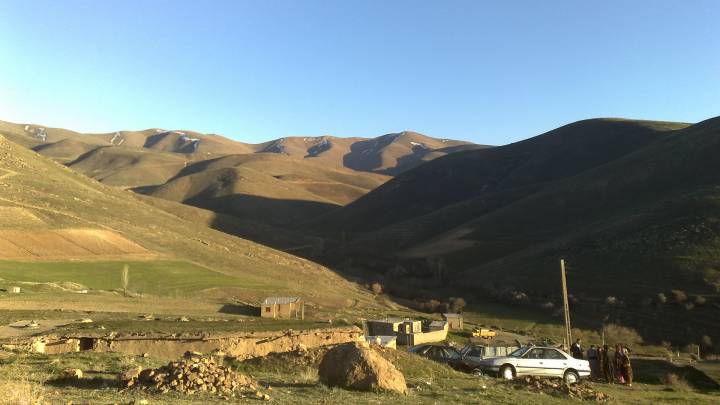Choreographer Sarina Panahideh on the viral video that made her part of Iran’s protest movement, being part of Erbil’s burgeoning arts scene, and the effect that only dancing can have on audiences.
zenith: A year ago, Mahsa Jina Amini's death triggered a wave of protests in Iran. How did you get involved in that movement?
Sarina Panahideh: I had shot a dance video called “Moment” already back in spring that year: The video clip shows me dancing through Erbil, Sulaymaniyah and Dohuk. Through streets and the markets, breezing over the citadel. The passersby react very differently according to their gender. While girls and women look away, in fear of being judged, men often pay attention to you, either for their amusement or out of astonishment. Or they record you with their smartphones, post it on social media and write condescending comments underneath. Children were often reacting in a very positive way, and started to dance along with me, sometimes yet encouraged by their parents.
What was the purpose of that clip?
Sending the message that dancing belongs in the public, regardless of the dancer’s gender. I had not, however, published the clips of the “Moment” series – out of fear that I would never be able to return to Iran. After all, my friends and my whole family is still in the country. But the protests changed that, I wanted to make my contribution. I published the clips, and they immediately got millions of clicks. I became an activist, in one fell swoop. But becoming famous had another consequence: I had to leave.
How would you define your art, and the role that sexual innuendoes play for your expression of political dissent?
My art at its core expresses the social concern of a woman fighting the Iranian government. My clips play with a lot of different symbols. May it be ice melting away like the government, eyes embodying censorship, the panopticon of those in power. Hair is one of many symbols that, in contrast to the hijab, show what liberates you. What you really own and have control over. And of course – it is about sexuality, not least because it is a language that audiences in Western countries understand.
Where does your passion for art, music and the stage come from?
My parents were not artists, but we sang a lot in the family, and music still connects us. It stood in contrast to the public space, a place of freedom: On the streets, dancing was forbidden. I have been performing on stage since I was five years old. First my sister let me join her for a play that she was part of. The same year I started in the school theatre. Unlike dancing, the theatre scene is huge in Iran: There are festivals, school theatre groups competing against each other, first on the municipal, then provincial and finally national level. I have won all the prizes since I was little. At the age of 16, I performed a solo act in my hometown of Divandarreh. For more than one hour telephone receivers were falling on the stage, and I had to reply by impersonating different characters.
You left Iran at the age of 23 and emigrated to Iraq. What was waiting for you there?
I wanted to leave, to start an international career – my anticipated destination was Canada. But Iraq captivated me, I realized that it is here I can make a difference. I lived in Tehran for quite a while, and it is a huge city. You know exactly with whom to visit underground clubs, where to dance and party. Iraqi Kurdistan was different, in many ways: Here, Iranian underground culture was public. What’s more important, I started to look differently at my Kurdish identity. I have always seen myself – and always will – as a Kurdish Iranian. However, in Iraq, my counterpart usually insisted on me being a “Rojhelati”, that is, someone from Eastern Kurdistan. And even If I reject the term for myself, it affected my stance on my Kurdish identity. In short, Erbil politicized me. In Iran, I was probably to young, or in any case, too busy for politics: It was all about the stage and the world of theatre.
How did you manage the switch from theatre to dancing?
First of all, in Iran, the language on stage is mostly Persian, sometimes English on international festivals. That changed in Erbil, where I also performed in Kurdish for the first time. Before that, Kurdish had been my mother tongue, but certainly not an educational or cultural language. And yet I quickly realized: Back home in Iran, stagecraft and theatre is on a different level – it's funny, modern, and innovative. Compared to what I performed for years in Iran with my friends, the theatre scene in Erbil paled in comparison. Being an actress is not a profession in Erbil. So over time, instead of words, I started to rely on my body, and doing performances in a language that everyone understands.
In Erbil, you co-founded an arts academy. How did that come about?
I started working as a dancing instructor in a kindergarten, later I worked for a dancing company. After a while, I was about to create my own academy together with two Syrian dancers, when SABIS International School reached out to me offering to partner up. So we founded an arts academy under the SABIS umbrella, hiring international experts from all over the world for several fields. The curriculum included performing art, fine arts as well as music, with the idea to provide the children with a holistic artistic education. I was managing different artistic branches, as well as directing some theatre productions.
What did your work in Erbil teach you?
Directing theatre productions annually confirmed to me, that I am capable of bringing more than hundred children of all ages together on stage. Take “Enchanted” – a story about Disney characters, fairy tales and legends, that we were performing in 2022. The play included dancing, singing and ballet performances where reality and fairy tales were flowing into each other. Throughout my work with children, I learned how to approach them – some are shy, feeling tense or are simply rude: For example, I had a 16-year-old who wouldn't shake hands with his sister because he thought it was a sin. Through dancing and acting however, he lost his fear of contact. The children learnt how to create a strong theatrical character, and they developed confidence in their bodies. These moments made me realize that I was exactly at the right place in Erbil.
You've been in Berlin for a couple of months now, staging performances and dance plays like “Colour me”.
In “Colour me”, I lead a group of eleven dancers and project assistants – all united by exile. The artists hail from Ukraine, Syria, Russia, Iraq and Iran, as well as Germany. During the performance, a glass wall separates the audience from the dancers, who move their bodies covered in skin-coloured costumes under a huge nylon towel. They are imprisoned, can’t move nor breath underneath it. Only later, when they stripe the towel off their bodies, they come alive again. Slowly, they approach the audience through the glass window, trying to be part of their society, trying to adapt. The situation is tense – with the movements of the dancers embodying the pain, and the violence they experience as othered human beings.
How is this tension resolved?
Towards the end, someone opens the windows, and lets the audience approach the performers. They can colour their bodies, painting them and giving them labels. Either in neutral, or in the colours of their original nations and their flags. It is an emblem, a signature: The way you colour me is the way you look at me. What sounds light-hearted can becomes oppressive. Many of the audience members as well as the performers leave the stage with a strange mix of joy and anguish.
In Iran and Iraq, you were a well-known artist. Here in Berlin, you are starting from scratch.
Even though I may have enjoyed a certain level of popularity in Iran that I don't find here – there is no time to complain. I have many interests and projects to realize. I will keep raising awareness against the Iranian government. And I will focus on racism in Europe, alienated identities, and their complexity. And above all I have understood: The struggle for women's rights is a universal struggle. I have a voice, I have a platform for my message, and I have a responsibility. We plan to perform “Colour me” soon in Turin, Copenhagen, Berlin, and Paris.
Sarina Panahideh is a Kurdish-Iranian artist from Divandarreh. In her early 20ies, she went to Iraq to develop the SABIS Arts Academy in Erbil. The 28-year-old artist, director, dancer and choreographer has been living and working in Berlin for the last couple of months.
